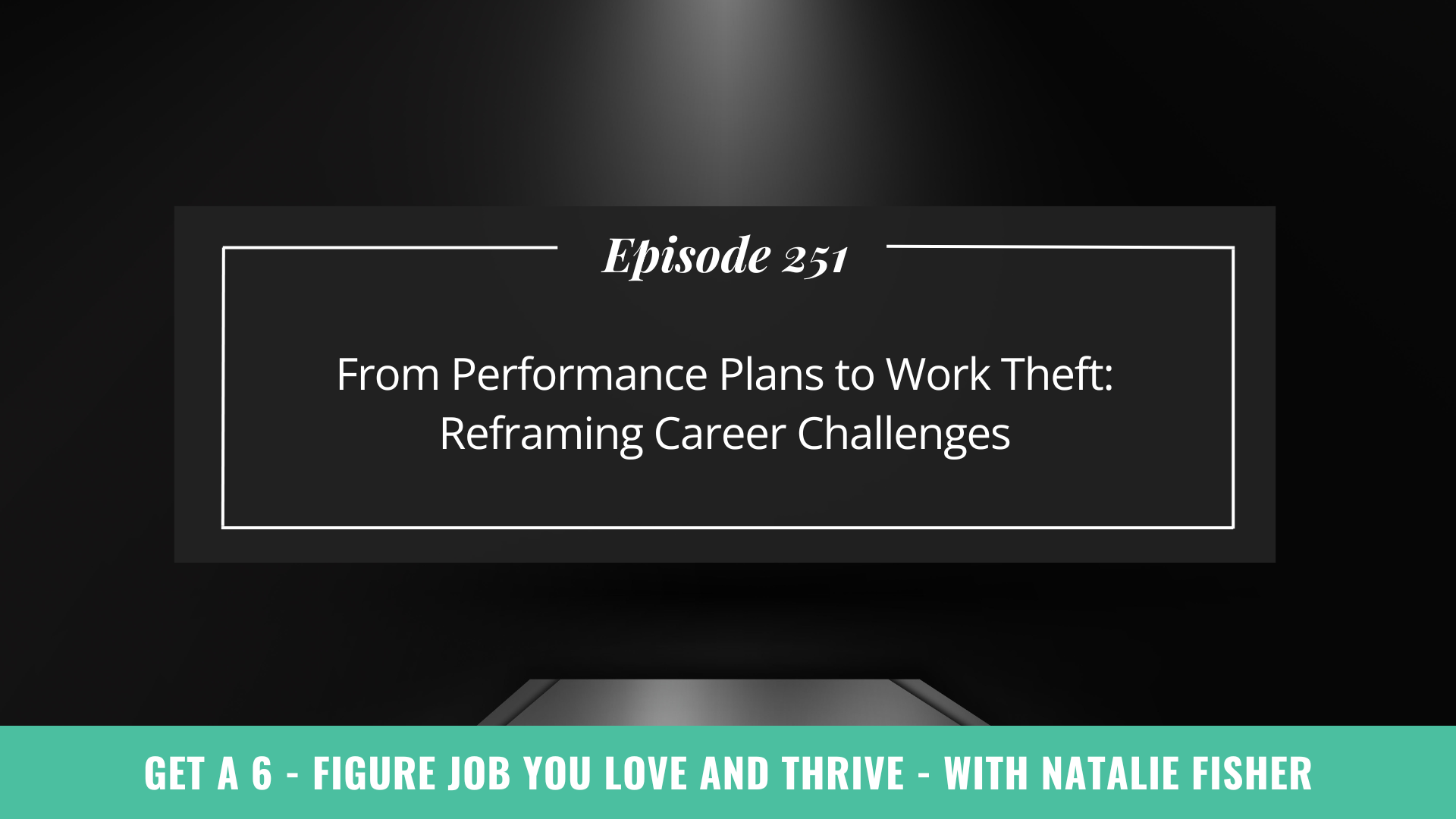Ep #251: From Performance Plans to Work Theft: Reframing Career Challenges

When Someone Steals Your Work: The Hidden Gift in Your Biggest Professional Violation
Imagine opening your laptop to find your carefully crafted presentation circulating the office with someone else's name on it. Your stomach drops. Your face burns with anger. You feel violated, powerless, and invisible all at once. It's one of the most infuriating experiences in professional life—and it might actually be a sign that you've leveled up more than you realize.
This episode tackles one of the most emotionally charged workplace challenges: having your work stolen or credit taken by colleagues. But instead of diving into righteous anger (though that's completely valid), we explore a perspective shift that can transform this violation into evidence of your professional growth.
The breakthrough moment comes when you realize that people don't steal mediocre work. They don't copy and paste bland presentations or claim credit for forgettable ideas. They steal work that's so good, so valuable, that they wish they had created it themselves. In a twisted way, having your work stolen is confirmation that you've reached a level of quality that others aspire to.
This isn't about excusing theft or avoiding boundaries—it's about recognizing that this challenge represents your new "curriculum." Just as you once had to learn technical skills, now you need to master the art of protecting and advocating for your work. It's a higher-caliber problem that requires higher-level skills.
The episode explores the concept of "post-traumatic growth" versus getting stuck in victim mode, using real coaching examples of clients who transformed workplace violations into career-defining moments of strength and advocacy.
What You'll Learn in This Episode:
- Why having your work stolen might actually indicate you've reached a new level of excellence
- The difference between unconscious victimhood and conscious empowerment in workplace conflicts
- How to reframe professional challenges as "mandatory curriculum" for your next level of growth
- Specific strategies for professionally advocating for your work without being confrontational
- Why your current problems are higher-quality than your past ones (and why that's actually great news)
Ready to discover if you're unconsciously undervaluing yourself in ways that invite others to do the same? Take the Value Vision Quiz to uncover your blind spots- link here.
Listen to the Full Episode:
